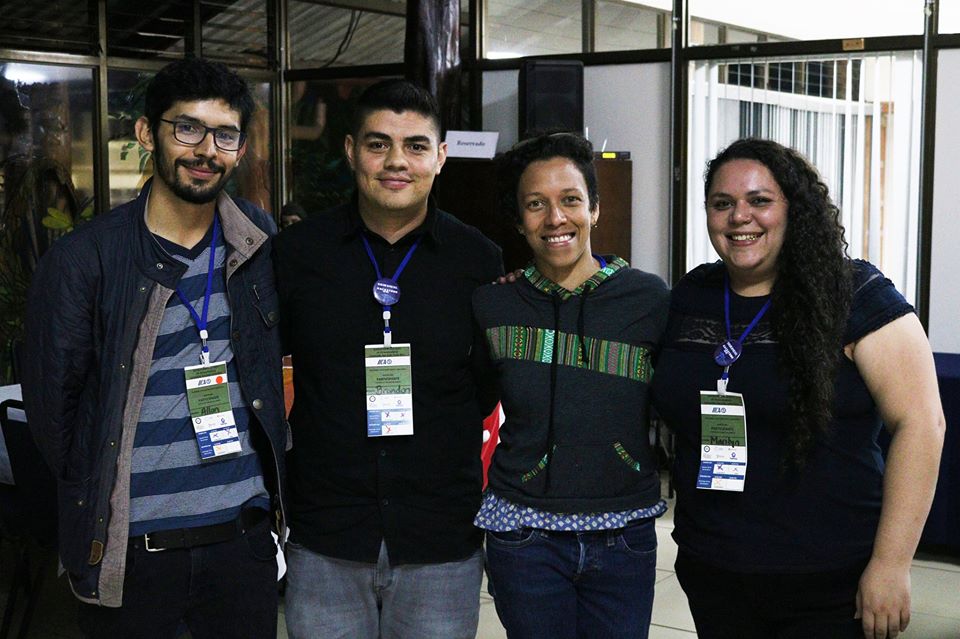The competition took place this weekend at IICA Headquarters, with the technical support of SENASA, Microsoft, World Animal Protection and CENFOTEC University.

San Jose, 11 November 2019 (IICA). Fifty young, Costa Rican technology professionals took part in an intensive two-day competition at the Inter-American Institute for Cooperation on Agriculture (IICA), to develop a tool which would enable producers and government services to minimize and mitigate the impact of natural disasters on the agriculture sector.
The 2019 IICA Hackathon challenged teams of up to five people to compete in developing an information system for planned emergency response and for the provision of effective solutions for these situations.
The competition, which was co-organized by the Institute and CENFOTEC University, sought to integrate two sectors—technology and agriculture—to provide innovative solutions for a sector that is vulnerable to climate variations.
The winning team was a group of four young people from Turrialba, a rural area in Costa Rica, who developed a mobile app to facilitate communication between the National Animal Health Service (SENASA) of Costa Rica and agricultural producers.
The team members were Allan Coto Álvarez, Brandon Madriz Araya, Marilyn Manrow Villalobos and Marilyn Ortega Rivera.
Manrow believes that, “This type of activity is very valuable for rural young people because it allows them to develop solutions to issues that directly impact their families, communities and livelihoods”.
The app is built on tools hosted by Microsoft Azure, a platform that offers cloud storage and allows for real-time reports, without the need for Internet access.
This development will support the response mechanisms of institutions in planning, utilizing resources and collecting data on natural disasters.
In planning this first IICA hackathon, the Institute relied on CENFOTEC University’s experience in these types of events, with the University inviting members of its student body to participate and co-opting specialists in various areas to assist the contestants in conceptualization and coding.
Currently, natural disaster response processes in Costa Rica do not enjoy access to real-time information, which makes it difficult to respond effectively to protect production animals in these situations.
The agriculture sector absorbs close to 25% of the total cost of damages and losses from these types of events.
“We need this type of support”, said Bernardo Jaén, Director of SENASA, “as it will enable us to improve our services and attention to the agriculture sector. The contribution of these young people will be invaluable in tackling the challenges facing agriculture”.
IICA, SENASA, Microsoft, World Animal Protection (WAP) and CENFOTEC University provided technical support to the participants.
Adriana Flores, Microsoft Customer Success Manager, remarked that, “Agriculture is mankind’s oldest occupation, and so today, we are infusing it with technology to create solutions that will allow it to be less vulnerable and more efficient”.
Rector of CENFOTEC University, Alejandro Cruz, noted that, “In the future, we must increasingly embrace practical applications in a way that benefits farmers, and through the use of a protocol, enables us to respond to emergencies.
The winners walked away with a USD 3000 cash prize and the individual with the most innovative description or idea related to artificial intelligence was awarded an airline ticket.
“This hackathon is part of IICA’s strategy to support the modernization of agriculture in the hemisphere and to bridge the digital divide in rural areas”, explained Emmanuel Picado, Manager of IICA’s Information and Communication Technologies and Digital Agriculture Division.
The hackathon is supported by Costa Rica’s Ministry of Science, Technology and Telecommunications (MICITT), and is the product of IICA’s partnership with Microsoft and CENFOTEC University, with which it recently signed respective agreements.
| More information: Emmanuel Picado, Manager of IICA’s Information and Communication Technologies and Digital Agriculture Division. emmanuel.picado@iica.int |
Institutional Communication, IICA.
comunicacion.institucional@











